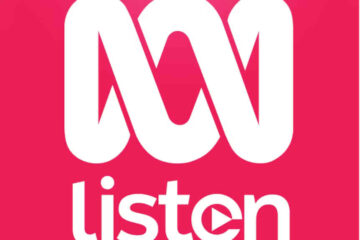Sabra Lane: Israeli Prime Minister Benjamin Netanyahu has flown to the United States to meet with President Donald Trump to discuss the war in Gaza. Negotiations between Israel and the Palestinian militant group Hamas for the ceasefire’s second phase were supposed to begin today. There’s concern inside Israel and internationally that Mr Netanyahu’s government may seek a return to fighting, although that would leave 65 Israeli hostages inside Gaza. From Jerusalem, Middle East correspondent Eric Tlozek reports.
Eric Tlozek : Hostages are coming out, aid is going in and Palestinians are returning to what’s left of their homes. But turning the Gaza ceasefire into a peace settlement is a formidable task. Former hostage negotiator Gershon Baskin says the ceasefire remains fragile.
Gershon Baskin :
Every day this could be derailed and we still have a large number of Israeli hostages in Gaza and the war could renew itself with tragic consequences.
Eric Tlozek : One of the key mediating countries, Qatar, says that while negotiations for the next phase of the ceasefire are supposed to begin today, Israel and Hamas have not agreed on a venue or an agenda. Israeli Prime Minister Benjamin Netanyahu reportedly cancelled a meeting with his country’s negotiating team over the weekend and chose not to send a delegation to Qatar. He’s instead flown to the United States to discuss the ceasefire with President Donald Trump tomorrow.
Benjamin Netanyahu : In this meeting we’ll deal with the important issues, critical issues facing Israel and our region, a victory over Hamas, achieving the release of all our hostages and dealing with the Iranian terror axis and all its components.
Eric Tlozek : Phase two of the ceasefire is meant to begin in early March and includes declaring a sustainable calm and the return of all remaining living hostages. Gershon Baskin says Donald Trump’s approach will likely determine if it goes ahead.
Gershon Baskin :If Donald Trump is going to stay firm with the position that he said on election night and in his inauguration and since then that he intends to see this completed throughout phase two and he is not a person who will start new wars, he’s a peacemaker, then Netanyahu is going to be on a collision course with Trump.
Eric Tlozek : Israelis have been dismayed to see that Hamas, instead of being destroyed by Israel’s bombardment and ground invasion, remains armed and seemingly in control of large parts of Gaza. But many are nevertheless urging their government not to restart the fighting. Eyal Sela is a former resident of Kibbutz Nahal Oz on the Gaza border who now campaigns for the return of his friends who were kidnapped and remain held hostage by Hamas.
Ayal Sela : I think we already won the war. Today we have to be back. We have to withdraw from the Gaza Strip and we have to bring back all the hostages and to give peace a chance. I’m not sure that it will be peace but at least it will be settlement. Some kind of arrangement with national forces that will avoid that October 7th will repeat again.
Eric Tlozek : There’ll be 65 hostages remaining inside Gaza at the end of phase one of the ceasefire, although a number of them are thought to be dead. Freeing them and permanently ending the destruction, starvation and displacement that have accompanied Israel’s assault on Gaza are what’s at stake. Questions that have long been avoided, like who will govern Gaza if not Hamas, will need to be dealt with if there’s to be a lasting peace. From Jerusalem, this is Eric Tlozek reporting for AM.



